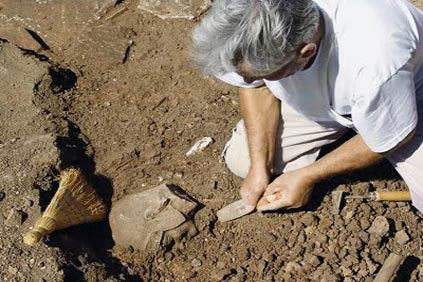A leading expert has called for enhanced international collaboration and a cross-border approach to safeguarding cultural heritage, which he described as a global treasure that belongs to all of humanity.
Gregor Hitzfeld, secretary general of the International Council on Monuments and Sites (ICOMOS) Germany, emphasized the importance of collective action in preserving cultural heritage. “Only through ongoing dialogue and collaboration between monument owners, authorities, institutions, and other stakeholders can we ensure its sustainable protection,” Hitzfeld said in a recent interview with Xinhua.
Hitzfeld shared his thoughts at the Denkmal Leipzig 2024, Europe’s premier trade fair for conservation, restoration, and the renovation of historic buildings. This year’s fair, which wrapped up on Saturday, focused on the preservation of United Nations Educational, Scientific and Cultural Organization (UNESCO) World Heritage Sites, with particular attention to the challenges posed by climate change.
“Climate change is having a profound effect on water resources,” Hitzfeld explained. “We’re experiencing extremes — either too little or too much water within shorter intervals and for prolonged periods. This is already affecting many World Heritage Sites in Germany and across the globe.”
As an advisory body to the World Heritage Committee and UNESCO, ICOMOS has increasingly documented climate-related damage to cultural sites during its monitoring activities. Hitzfeld stressed the need for stronger cooperation with environmental authorities and climate protection organizations to address these emerging threats.
With decades of experience in heritage conservation, Hitzfeld also highlighted the growing potential of artificial intelligence (AI) in the field. “AI offers significant opportunities, especially in heritage management,” he noted. “It can help us identify or predict damage to buildings, compare cases, recommend restoration techniques and materials, and even assist with archaeological identification.”
However, he emphasized that while AI has much to offer, it cannot replace the expertise of human heritage professionals. “AI remains to be a tool, not a replacement for the nuanced knowledge and experience of heritage experts,” he cautioned.
Regarding China’s role in global heritage preservation, Hitzfeld praised the country’s efforts. “China has a rich cultural heritage, and its institutions have gained considerable experience in protecting these treasures,” he said. “We welcome more Chinese institutions and experts to join the international effort to safeguard cultural heritage.”

